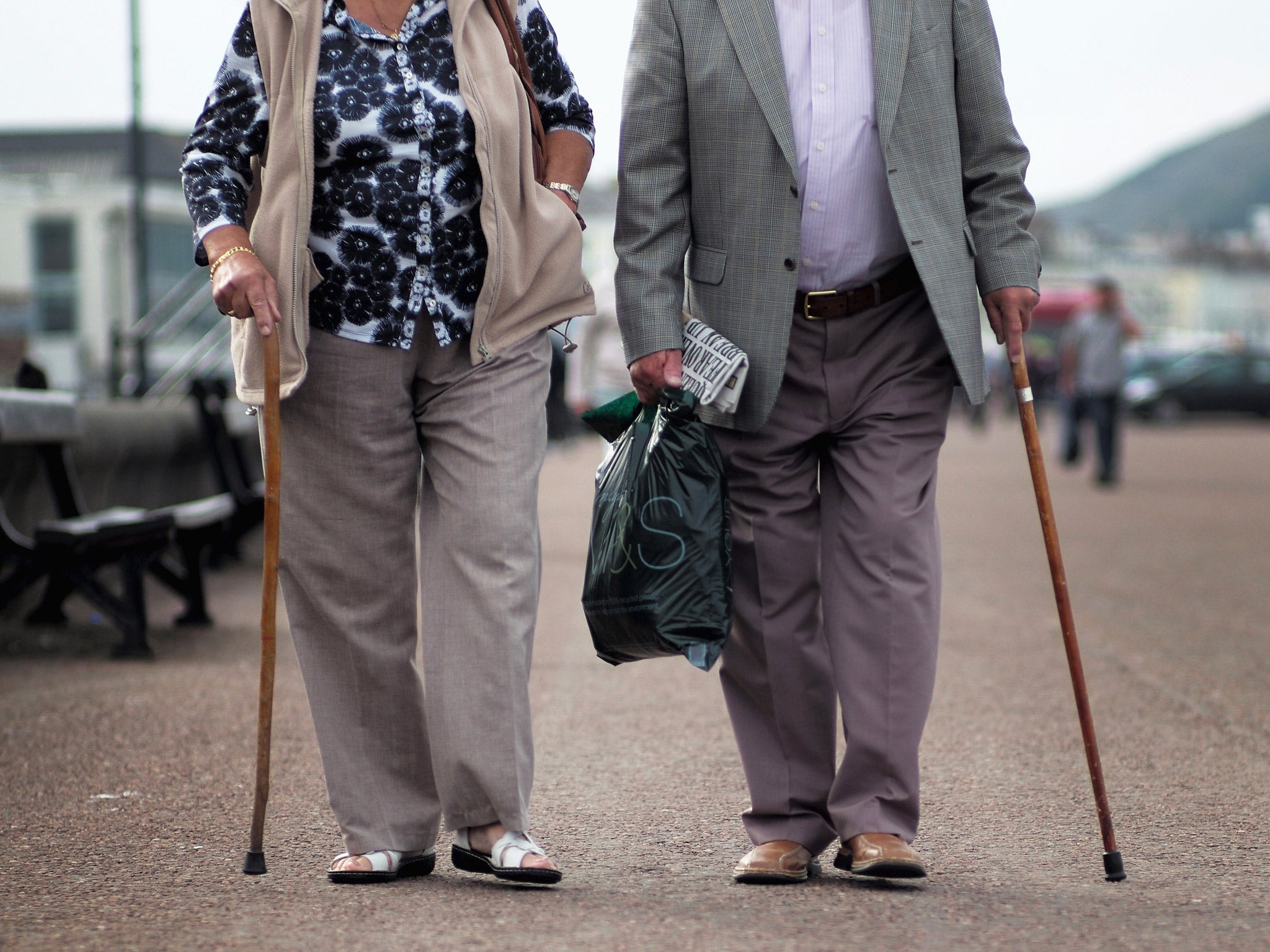Pensioners have greater share of UK wealth than under-45s, study shows
Concerns over potential conflict as young people resent paying taxes to fund pensions of better-off old people

Your support helps us to tell the story
From reproductive rights to climate change to Big Tech, The Independent is on the ground when the story is developing. Whether it's investigating the financials of Elon Musk's pro-Trump PAC or producing our latest documentary, 'The A Word', which shines a light on the American women fighting for reproductive rights, we know how important it is to parse out the facts from the messaging.
At such a critical moment in US history, we need reporters on the ground. Your donation allows us to keep sending journalists to speak to both sides of the story.
The Independent is trusted by Americans across the entire political spectrum. And unlike many other quality news outlets, we choose not to lock Americans out of our reporting and analysis with paywalls. We believe quality journalism should be available to everyone, paid for by those who can afford it.
Your support makes all the difference.The share of UK household wealth enjoyed by people who have recently retired has overtaken that enjoyed by the under 45s, according to a new study.
A senior Conservative will today urge the Government to review how the public spending cake is cut to head off a potential conflict between the generations as young adults resent paying taxes to fund the pensions of old people who are much better off than they are.
The Resolution Foundation think tank expressed concern after uncovering a “stark generational divide”. The 65-74 year-olds hold a bigger slice of total household wealth than the under 45s for the first time since official figures started to be compiled in 2006.
The proportion held by households headed by a 65-74 year-old rose from 17 per cent in 2006-08 to 19 per cent in 2010-12, while the share enjoyed by those headed by a 16-44 year-old dropped from 20 per cent to 16 per cent over the same period – even though twice as many households are headed by the younger age group than the recently retired. The figures include savings, owner-occupied housing, buy-to-let properties, physical assets and pensions.
According to the think tank, the significant shift was caused partly by the house prices recovering much more quickly than wages after the recent downturn. Real wages took six years to start rising again, while the over 60s were least affected by the pay squeeze. The change also reflects falling home ownership rates among young adults.
The foundation will make policy recommendations to bridge the divide between the generations after studying the gap further. Its project could spark a debate about the £6bn-a-year “triple lock” under which the basic state pension rises by inflation, earnings or 2.5 per cent, whichever is higher, and whether better off pensioners should receive winter fuel allowances, free TV licences and bus passes.
Lord (David) Willetts, the Tory peer and former Universities Minister who chairs the foundation, will say: “We cannot rely on families alone to offset intergenerational inequalities, particularly if the state transfers wealth in the opposite direction. Such a pattern has serious implications for social mobility.”
Speaking at Keele University, Lord Willetts will say: “There is an urgent need for action to boost housing supply, and for government to take a far deeper look at the inter-generational implications of its public spending priorities.” But he does not believe the wealth shift is yet creating an intergenerational conflict, pointing out that many retired people help their children and grandchildren get on the property ladder.
Lord Willetts will say it is “false” to argue that all pensioners are doing well financially, as one in seven have less than £50,000 to draw on in retirement. But to ensure today’s young adults enjoy the same wealth when they retire as today’s old people, productivity and wages must grow at a healthy rate, he will say.
George Osborne was criticised last month after his government-wide review increased the share of state spending on health and the old. But last night allies of the Chancellor insisted he addressed the intergenerational issue with plans to boost home ownership levels for young people; raise stamp duty for buy-to-let landlords and bring in a levy on companies to fund apprenticeships.
Mr Osborne has forced the BBC to meet the £750m cost of free licences for the over-75s. He will not challenge winter fuel payments and free bus passes before the 2020 election because David Cameron promised to keep them before this year’s election. Although some ministers want to water down the pledge in 2020, that could be politically explosive because old people vote in greater numbers than any other age group.
Join our commenting forum
Join thought-provoking conversations, follow other Independent readers and see their replies
Comments